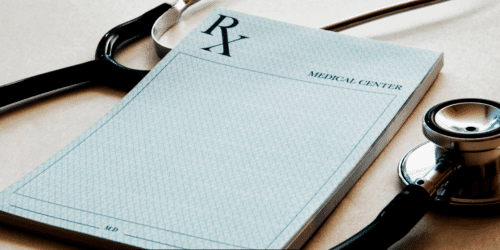
Healthcare organizations manage extensive supplier networks and high invoice volumes making manual reconciliation increasingly challenging. Without regular review and reconciliation, data entry errors, billing mistakes, or even fraudulent activity can go unnoticed. Accurate and timely supplier invoices and payments directly impact operational efficiency, cost control, and ultimately, vendor relationships – all crucial to the Supply Chain function.
Supply Chain & Purchasing leaders navigate numerous critical items including operational inefficiencies, financial pressure, compliance and risk maintenance. Investment in supplier Statement Reconciliation offers not only financial benefits but also valuable insights into their supplier’s performance and the quality of their relationships.
Operational Inefficiencies
- Significant time lost performing manual reconciliations
- Time constraints causing statement reconciliations to be conducted manually, infrequently, or on an irregular basis
- Lack of visibility into spending patterns across multiple supplier account numbers
- Difficulty scaling reconciliation processes as supplier networks grow
Financial Pressures
- Margin compression in healthcare requiring protection of every dollar
- Lack of visibility to chargebacks, unapplied or misapplied payments
- Supplier contracts with complex rebate structures and volume discounts
- Working capital tied up in disputed invoices and unresolved discrepancies
- Risk of overpayments going undetected for months or years
Compliance & Risk
- Internal controls and compliance requirements for financial oversight
- Supplier relationship strain from payment disputes
- Regulatory scrutiny of healthcare spending and procurement practice
Supplier Statement Reconciliation is often seen as a Finance responsibility, but Supply Chain and Purchasing leaders should be actively engaged because automation can:
- Reduce processing time by up to 90%, compared to manual methods
- Help resolve invoice disputes
- Identify duplicate payments or overpayments across vendor accounts
Technology-Driven Optimization
Advanced analytics, AI, and automated procurement platforms allow healthcare systems to optimize purchasing decisions in real-time, resulting in better processes, data-driven decision making, and strengthening strategic supplier relationships.
Healthcare supply chains operate under unique pressures that make payment accuracy critical to operations. Here’s how automated reconciliation delivers measurable value across six key areas that matter most to supply chain leaders:
1. Ensures Pricing and Contract Compliance
Healthcare organizations negotiate complex contracts with manufacturers, distributors, and GPOs that include volume discounts, rebates, and tiered pricing structures. Automated statement reconciliation can reveal invoice discrepancies and overcharges. It helps verify that vendors are honoring negotiated terms and pricing agreements. Furthermore, credits for rebates can be identified, processed, and realized more promptly, driving supplier accountability and protecting margins.
2. Prevents Supply Chain Disruptions
In healthcare, supply interruptions can directly impact patient care and safety. Unpaid invoices or misapplied payments can trigger credit and supply holds and prompt vendor escalations. Automated Statement Reconciliation identifies these issues early, preventing downstream supply problems that can affect patient care.
3. Enhances Supplier Relationships
Healthcare suppliers offer more than just products – they provide clinical education, product training, and innovation that benefit patient outcomes. Timely reconciliation demonstrates professionalism and partnership. This process resolves invoice discrepancies faster and helps build trust and collaboration, making vendors more responsive and flexible, often translating into early access to new technologies, preferential pricing on innovative products, or enhanced support services that improve care delivery.
4. Reduces Risk of Financial Losses
Healthcare organizations operate on razor-thin margins where every dollar counts. Automated reconciliation will detect potential duplicate payments, unapplied credits, and missing invoices that can accumulate into substantial losses over time, while identifying process deficiencies to prevent future financial losses.
5. Supports Better Data for Strategic Decisions
Clean AP data becomes a strategic asset, improving spend analytics and vendor performance evaluations. This accurate data foundation optimizes sourcing, purchasing, and planning decisions.
6. Drives Procure-to-Pay Accountability
Reconciliation of supplier statements aligns purchasing, accounts payable and suppliers on a shared source of truth. The regular reconciliation of statements can highlight internal process issues like missing POs, unresolved matched exceptions, RNI transactions, and missing or unapproved invoices and allow users to resolve the root cause
Bottom Line
Health systems can process from hundreds of thousands of transactions to over a million transactions each year, making payment accuracy a shared responsibility between Accounts Payable and Purchasing. Without supplier statement reconciliation, organizations are forced to rely solely on suppliers to invoice and apply payments correctly – leaving room for undetected errors, overpayments, and missed credits.
Supplier Statement Reconciliation is not just financial control; it is a tool for Supply Chain integrity. When performed regularly, it enables Supply Chain and Purchasing leaders to enforce contracts, avoid disruptions, reduce waste, and maintain strong supplier relationships, all while supporting payment accuracy and mitigation of financial losses.
Healthcare supply chains demand specialized expertise that Strategic Audit Solutions offers. We understand both operational complexity and regulatory requirements and their impact on your financial performance. StatementSYNC, one of our AI-driven automated SaaS solutions, integrates with all major healthcare ERPs and highly customized procurement systems, from Infor and PeopleSoft to Oracle to SAP, without disrupting your current workflows. As a HIPAA-compliant organization, we understand the unique data security and privacy requirements that healthcare organizations face, ensuring your supplier and financial data remains protected throughout the reconciliation process.
Whether you’re managing a single hospital or a multi-facility health system, purpose-built reconciliation technology transforms financial accuracy from a back-office function into a strategic advantage that directly supports your mission of exceptional patient care.
SAS Insights
Strategic Audit Solutions Launches AuditSUITE360 Platform as Demand for Accounts Payable Recovery Technology Surges
Enterprise-grade financial recovery technology delivers 90% efficiency gains in automated cost control Freehold, NJ – May 1, 2025 – Strategic Audit Solutions, a leader in accounts payable recovery audit technology, […]
Continue Reading
The SaaS Revolution- Your Recovery Audit Secret Weapon
The SaaS Revolution: Your Recovery Audit Secret Weapon Let’s be honest, cloud migration isn’t exactly breaking news. But you know what is? The explosive growth of SaaS adoption. Reports1 indicate […]
Continue Reading
AP Recovery Audits- The Essential Guide to Protecting Your Bottom Line
AP Recovery Audits- The Essential Guide to Protecting Your Bottom Line Organizations process millions of transactions annually. Amid this volume, errors are inevitable. Whether it’s duplicate payments, missed credits, or […]
Continue Reading
The Importance of Maintaining a Clean Vendor Master File
The Importance of Maintaining a Clean Vendor Master File The vendor master file is a cornerstone of accounts payable operations and plays a crucial role in maintaining financial integrity and […]
Continue Reading
